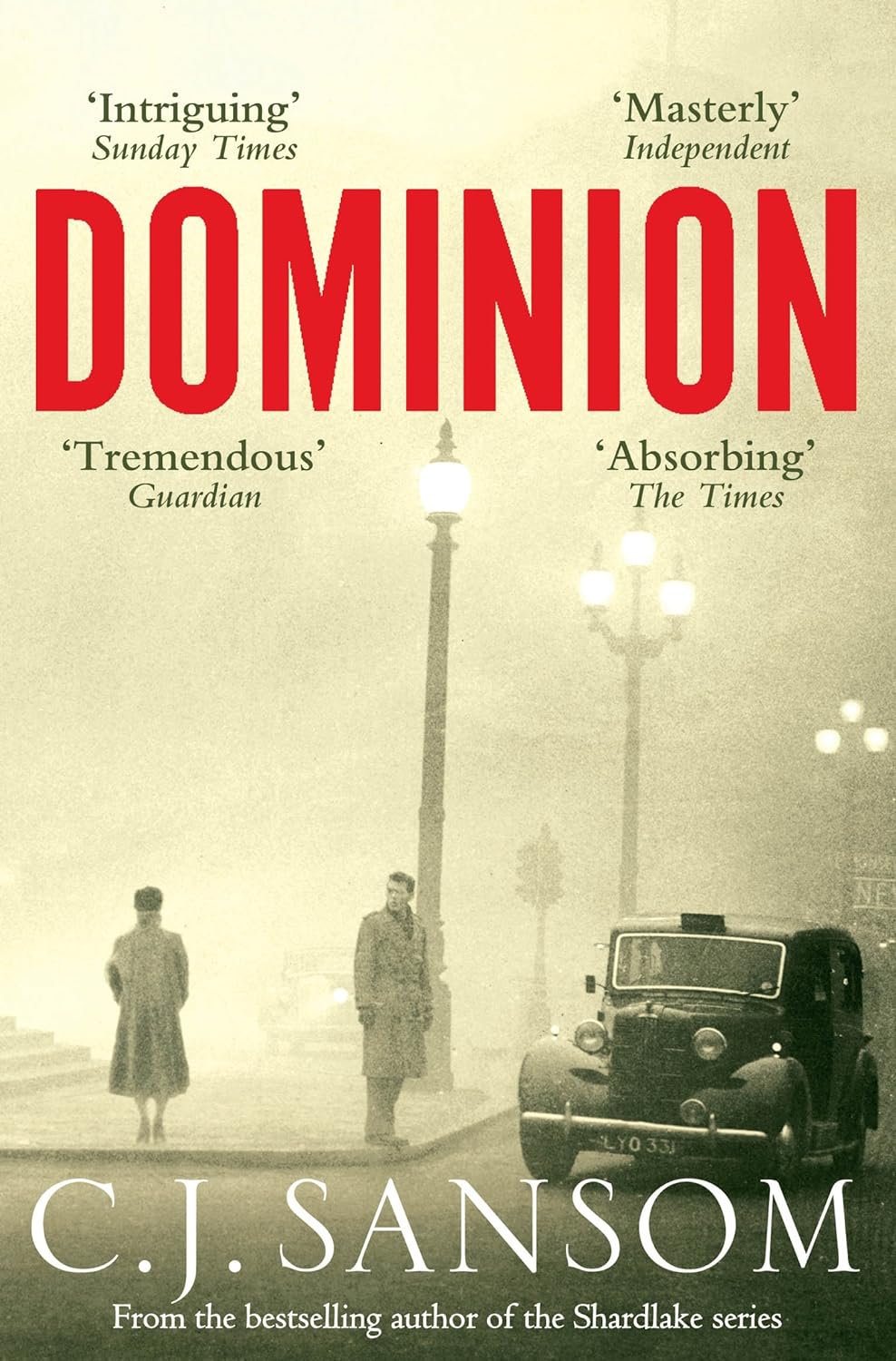Dominion
"Thought-provoking and powerful."
Synopsis:
It is 1952 and Britain is under the rule of a government that surrendered to the Nazis in 1940 and is now working with them. British Jews are required to wear badges and are under threat of exportation, the press is controlled and order is maintained by violent police on the streets. The Government is headed by Lord Beaverbrook, with Mosley and Enoch Powell in support.
David Fitzgerald works for the Government but is secretly a member of the resistance, headed by Churchill, now in his eighties. Fitzgerald also had a mother who was a Jew. His marriage is under great strain as he struggles to hide these facts from everyone, particularly from his wife who is herself a pacifist.
One of David's old university friends, Frank Muncaster, is being kept in a psychiatric hospital after apparently pushing his brother out of a window. The cause of the fight was his brother's drunken revelation of his work in the United States. This horrific secret is the reason that so many people on all sides want to get hold of Frank. David is responsible for aiding Frank's escape.
Leading the search for Frank from the German side is Gestapo Sturmbannfuhrer Gunther Hoth. A seasoned and determined detective, Hoth is able to read situations and people's motives to great effect. The action builds up towards a tense climax when the protagonists meet in a dramatic rescue attempt.

Purchase the book from Amazon.
Review:
It is interesting to embark on what might have been, and quite frightening to think what could have happened if the course of the war had been different. Not such an impossible scenario as portrayed by Sansom. He himself was influenced by Robert Harris' 'Fatherland' and Len Deighton's 'SS-GB', and the result is an intriguing examination of what a Nazi sympathising Britain could have been. What I particularly like are the detailed descriptions of the characters. They relate to types we know today, and those who collaborate and those who resist are neither totally good nor totally bad. It makes you think “what would I have done?” Even the Gestapo officer Gunther Hoth starts off as a generally decent upright German who becomes obsessed and frightened by what he sees as the power of the Jews. Hoth and many others are seduced by the excitement of the new life promised by the National Socialist Party compared to the drab monotony of unemployment and poverty. This is a reflection on the evils of nationalism and in an historical note at the end Sansom sets out his own views, including a denouncement of today's Nationalist parties, particularly The Scottish Nationalists. Sansom cleverly weaves actual happenings of the time into the story, particularly the great London smog of 1952, almost a metaphor for the disarray of the country. Joe Lyons Corner house has changed its name because Joe Lyons was a Jew. I have less sympathy for his choice of politicians who chose to collaborate. I agree that Mosley would have definitely been in the forefront, but I am not sure about Enoch Powell. He definitely had racist views, but he was very anti Nazi prior to the war and was scathing in his attack of Halifax and Chamberlain. I cannot see him as a collaborator, but this is fiction. This book is a meaty tale with an entrancing story line and, as ever with Sansom, it has brilliant characterisation. The strength of this book for me is the way in which it engenders thought and consideration of the way people think and the way in which the whole course of history can hinge on very little. Thought-provoking and powerful.
